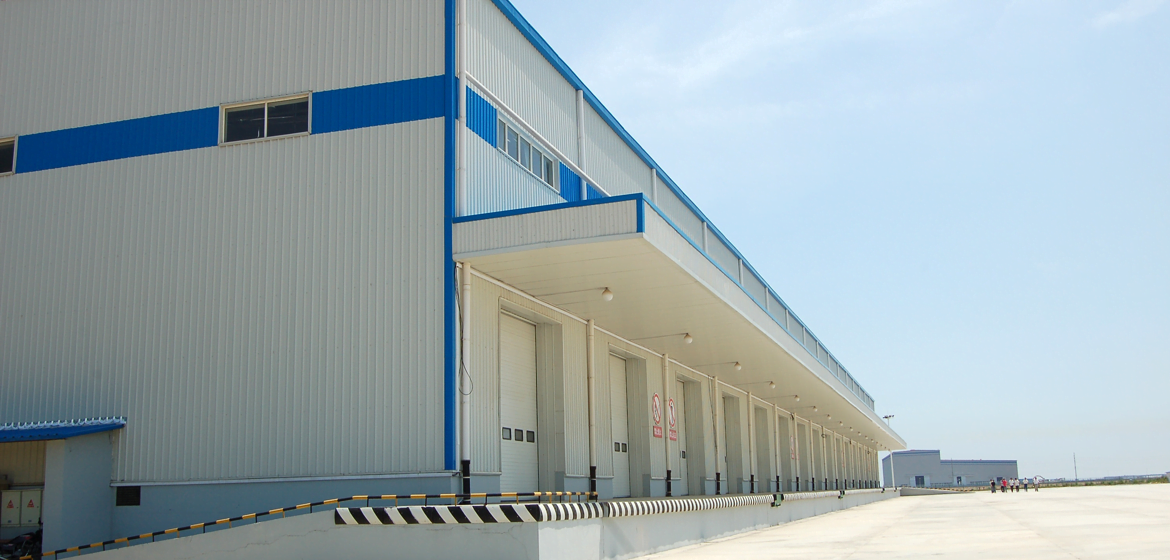Within the UK, manufacturers can use special customs procedures to their advantage to avoid paying customs duty on imported inputs, if the final product is re-exported. This can occur either under inward processing procedures, or within less onerous freeports procedures.
In certain circumstances, use of duty drawback schemes in combination with a free trade agreement can place the exporting manufacturer at an advantage to domestic producers in the importing country.
This is because if the exported product meets the product-specific rules of origin criteria identified in the free trade agreement (FTA), for example, having changed commodity code under identified permissions at chapter, heading or subheading level or meeting the rules concerning the permitted percentage of non-originating materials, then the product can include imported intermediates.
The advantage is gained because domestic producers would be required to pay import duty on intermediates imported into free circulation, whereas companies which use special procedures then re-export under the terms of an FTA will benefit from tariff exemption or reimbursement via drawback.
For example, if cotton fabric under CN code 5208 is imported from China into a freeport, where it is made up (including printing of the fabric) made or combined with other materials representing 60% or more of the value of the parts, and or made up into an embroidered dress under heading 6204 42 and re-exported to Spain, the UK manufacturer will be exempt from the 8% customs duty liability on the cotton fabric, under the terms of the product specific rules of origin contained within Annex 2 of the EU-UK Trade and Cooperation Agreement.

Providing the manufactured garment meets the above criteria, it would be considered to be originating, therefore the importer would be exempt from tariffs. Whereas a Spanish clothing factory importing directly from China into free circulation, would have to bear the import duty on the cotton fabric as an input impacting their gross profit margin, as would a UK manufacturer producing identical garments without use of special procedures, or for home use.
Export subsidies are usually prohibited by the World Trade Organisation (WTO) via Article 3 of the WTO’s Agreement on Subsidies and Countervailing Measures (SCM Agreement, however Annex I of the SCM Agreement permits drawback arrangements provided that the duty reimbursed is not in excess of the levy on imported intermediates that are consumed in the production of the exported product.
Duty drawback may have a distorting effect on international trade conducted on preferential terms under a free trade agreement, as it has potential to provide the exporting country with a competitive advantage, and may incentivise the use of third country inputs trading under “most favoured nation” (MFN) tariffs instead of sourcing from the domestic market or that of an FTA partner. Therefore certain free trade agreements prohibit the use of duty drawback schemes.
The table below identifies countries that the UK has an FTA with that do not contain a prohibition on duty drawback.
UK FTAs that do not contain duty drawback prohibitions
Counterparties
UK-Australia FTA
Australia
UK-Andean countries Trade Agreement.
Colombia, Ecuador and Peru
UK-Cameroon Economic Partnership Agreement
Cameroon
UK-CARIFORUM Economic Partnership Agreement
Antigua and Barbuda, Barbados, Belize, the Commonwealth of the Bahamas, the Commonwealth of Dominica, the Dominican Republic, Grenada, the Republic of Guyana, Jamaica, Saint Christopher and Nevis, Saint Lucia, Saint Vincent and the Grenadines, the Republic of Suriname and the Republic of Trinidad and Tobago
UK-Central America Association Agreement
Costa Rica, El Salvador, Guatemala, Honduras, Nicaragua and Panama
UK-Côte d’Ivoire Stepping Stone Economic Partnership Agreement.
Côte d’Ivoire
UK-Eastern and Southern Africa Economic Partnership Agreement
Madagascar, Mauritius, Seychelles and Zimbabwe
UK-EU trade and co-operation agreement
EU
UK-Ghana Interim Trade Partnership Agreement
Ghana
UK-Japan Comprehensive Economic Partnership Agreement
Japan
UK-Kenya Economic Partnership Agreement
Kenya
UK-Norway, Iceland, and Liechtenstein Free Trade Agreement
Iceland, Liechtenstein and Norway
UK-New Zealand FTA
New Zealand
UK-Pacific States Interim Economic Partnership Agreement
Fiji, Papua New Guinea, Samoa and Solomon Islands
UK-Southern African Customs Union and Mozambique Economic Partnership Agreement
Botswana, Eswatini (formerly known as Swaziland), Namibia, Lesotho, Mozambique, and South Africa
UK-South Korea Free Trade Agreement
South Korea
UK-Turkey Free Trade Agreement
Turkey
UK-Vietnam Free Trade Agreement
Vietnam
The majority of the UK’s free trade agreements are continuity agreements, where the UK has extended the provisions of the previous EU FTA, within a “short-form” approach under which it has incorporated the corresponding FTA, subject to amendments.
The following table identifies countries where the specific provisions of the UK’s free trade agreements contain a prohibition on duty drawback
Counterparty
Albania
Article 15 of Protocol 4 to the incorporated EU-Albania Stabilisation and Association Agreement, as amended by Annex III to the UK-Albania Partnership, Trade and Co-operation Agreement.
Canada
Article 2.5 of the incorporated EU-Canada Comprehensive Economic and Trade Agreement, as amended by Annex A, Part B, Chapter 2, paragraph 3 of the UK-Canada Agreement on Trade Continuity.
Chile
Article 14 of Annex III to the incorporated EU-Chile Association Agreement, as amended by paragraph 8 of Section 7 of the Annex to the UK-Chile Association Agreement.
Egypt
Article 15 of Protocol 4 to the incorporated EU-Egypt Association Agreement, as amended by Annex II to the UK-Egypt Association Agreement.
Faroe Islands
Article 15 of Protocol 3 to the incorporated EU-Faroe Islands Agreement, as amended by the Appendix to the Annex to the UK-Faroe Islands Free Trade Agreement.
Georgia
Article 15 of Protocol I to the UK-Georgia Strategic Partnership and Co-operation Agreement.
Israel
Article 15 of Protocol 4 to the incorporated EU-Israel Association Agreement, as amended by Appendix 3 to Annex II to the UK-Israel Trade and Partnership Agreement.
Jordan
Article 15 of Protocol 3 to the EU-Jordan Association Agreement, as amended by Annex II to the UK-Jordan Association Agreement.
Kosovo
Article 15 of Protocol III to the incorporated EU-Kosovo Stabilisation and Association Agreement, as amended by Annex II to the UK-Kosovo Partnership, Trade and Co-operation Agreement.
Lebanon
Article 15 of Protocol 4 to the incorporated EU-Lebanon Association Agreement, as amended by Annex II to the UK-Lebanon Association Agreement.
Liechtenstein
Article 15 of Protocol 3 to the EU-Switzerland Free Trade Agreement, as amended by the Appendix to Annex 1 to the UK-Switzerland Trade Agreement, which is incorporated by reference by the UK-Liechtenstein Additional Agreement.
Mexico
Article 14 of Annex III to Decision No 2/2000 under the incorporated EU-Mexico Economic Partnership, Political Coordination and Cooperation Agreement, as amended by paragraph 42 of the Annex to the UK-Mexico Trade Continuity Agreement.
Moldova
Article 15 of Protocol I to the UK-Moldova Strategic Partnership, Trade and Co-operation Agreement.
Morocco
Article 15 of Protocol 4 to the incorporated EU-Morocco Association Agreement, as amended by Annex II to the UK-Morocco Association Agreement.
North Macedonia
Article 15 of Protocol 4 to the incorporated EU-Macedonia Stabilisation and Association Agreement, as amended by paragraph (a) of Annex 2 to the UK-North Macedonia Partnership, Trade and Co-operation Agreement.
Palestine
Article 15 to Protocol 3 of the incorporated EU-Palestinian Authority Interim Association Agreement, as amended by the Appendix to the Annex to the UK-Palestinian Authority Interim Political, Trade and Partnership Agreement.
Serbia
Article 15 of Protocol 3 to the incorporated EU-Serbia Stabilisation and Association Agreement, as amended by Annex III to the UK-Serbia Partnership, Trade and Co-operation Agreement.
Singapore
Article 15 of Protocol 1 to the incorporated EU-Singapore Free Trade Agreement, as amended by the Appendix to the Annex to the UK-Singapore Free Trade Agreement.
Switzerland
Previously, Article 15 of Protocol 3 to the incorporated EU-Switzerland Free Trade Agreement, as amended by the Appendix to Annex 1 to the UK-Switzerland Trade Agreement, provided for a general prohibition on duty drawback. This was subsequently amended by Decision No 2/2021 of the UK – Switzerland Trade Joint Committee of 16 July 2021, which removed the prohibition for all materials except textiles (see FCDO: Decision No 2/2021 of the UK – Switzerland Trade Joint Committee of 16 July 2021).
Tunisia
Article 15 of Protocol 4 to the incorporated EU-Tunisia Association Agreement, as amended by Annex II to the UK-Tunisia Association Agreement.
Ukraine
Article 15 of Protocol I to the UK-Ukraine Political, Free Trade and Strategic Partnership Agreement.
For information addressing the use of intermediates in freeports, and understanding whether your production can benefit from duty drawback in conjunctions with a free trade agreement, please contact Alinea Customs’ consultancy team.
Telephone: +44 (0) 207 101 4242
Contact: customs@alineacustoms.com


